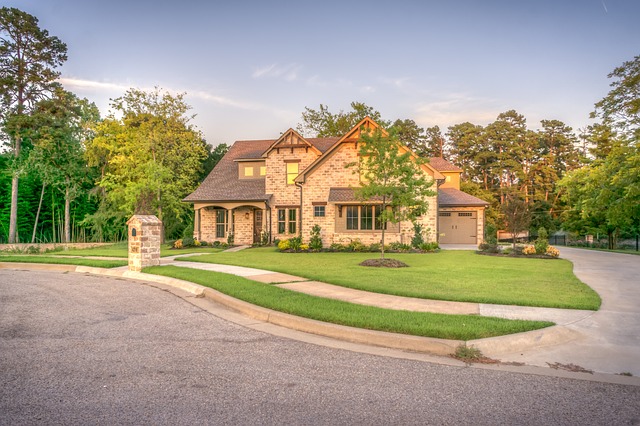Understanding home renovation costs is vital for effective budgeting and maximizing ROI. Costs vary based on factors like scope, location, materials, and contractor rates. A strategic budget plan should include labor, materials, permits, and contingencies. Online renovation cost estimators and professional advice help in accurate financial planning, ensuring each dollar spent aligns with long-term goals for affordable home renovations.
Planning a home renovation? Understanding and managing your costs is crucial for maximizing long-term value and return on investment (ROI). This comprehensive guide dives into the world of home renovation costs, offering insights into budgeting strategies, decoding expense components, and leveraging tools like renovation pricing guides and cost estimators. Discover how to make informed decisions for an affordable yet impactful home upgrade.
Understanding Home Renovation Costs: A Comprehensive Pricing Guide
Understanding Home Renovation Costs: A Comprehensive Pricing Guide
Before diving into any renovation project, having a clear grasp on home renovation costs is essential for effective budget planning and maximizing your return on investment (ROI). The cost of home improvements can vary widely depending on factors like the scope of work, location, material choices, and contractor rates. For instance, a simple bathroom remodel might range from $10,000 to $30,000, while a full kitchen overhaul could easily exceed $50,000. To navigate this landscape, start by familiarizing yourself with the various components that make up renovation pricing.
A detailed remodeling cost breakdown typically includes labor costs for contractors and subcontractors, material expenses (from flooring to fixtures), permit fees, and unexpected project contingencies. Utilizing renovation cost estimators or consulting with professionals can provide valuable insights into typical prices in your area. These tools allow you to input project specifics, such as square footage, design preferences, and desired materials, to generate an estimated budget. Remember that while these guides offer a solid foundation, actual costs may fluctuate based on unique project requirements and market dynamics.
Strategies for Effective Budget Planning: Maximizing Long-Term Value and ROI
Strategizing effective budget planning is key to maximizing long-term value and return on investment (ROI) in home renovations. A comprehensive renovation budget should account for both immediate needs and future goals, balancing aesthetics with functionality. Begin by creating a detailed list of desired changes and prioritizing them based on importance and impact on property value. This process forms the foundation for your renovation pricing guide, helping to identify which aspects of your project are more affordable and which might require saving up or reallocating funds from other areas.
Utilize reliable renovation cost estimators available online, as they can provide a robust framework for budgeting. These tools factor in average home renovation costs, broken down by region and type of remodeling expenses, allowing you to set realistic financial expectations. Additionally, consider consulting with professionals who can offer insights into the most cost-effective ways to upgrade your home while ensuring that each dollar spent contributes significantly to your long-term goals.
Decoding Remodeling Expenses: Breaking Down Cost Components
Decoding Remodeling Expenses: Breaking Down Cost Components
Planning for a home renovation involves understanding that remodeling expenses are far more than just the visible changes. It’s crucial to break down costs into various components, including labor, materials, permits, and unexpected contingencies. This comprehensive approach ensures a realistic renovation budget planning process that aligns with your long-term goals and expected return on investment (ROI).
A detailed renovation pricing guide reveals several factors influencing home renovation costs. Materials, for instance, can vary widely based on quality and design preferences. Labor expenses depend on the complexity of the work and local market rates. Permits, though often overlooked, are essential components that can add up quickly. By analyzing these aspects, homeowners can create an affordable home renovation plan using reliable cost estimators, ensuring both significant upgrades and sustainable ROI.
Tools & Resources: Navigating Renovation Cost Estimators for Smart Decisions
Renovation projects can be complex, and understanding the financial aspect is key to making smart decisions. One valuable tool in your arsenal for navigating home renovation costs is a cost estimator. These resources provide a detailed breakdown of potential expenses, helping you plan a realistic renovation budget. A good renovation pricing guide will account for various factors like labor, materials, and project scope.
By utilizing these estimators, you can avoid costly surprises later on. They offer insights into affordable home renovation ideas and help you set expectations for the investment required. Remember, thorough research and an informed decision are essential when considering home upgrade expenses.
Renovating your home is a significant investment, but with careful planning and understanding of the various factors influencing home renovation costs, you can ensure long-term value and maximize your return on investment (ROI). By decoding the different components of remodeling expenses and utilizing smart tools like cost estimators, you’re equipped to create a realistic renovation budget that aligns with your vision. Remember, effective budgeting is key to achieving not only desirable aesthetics but also sound financial management for your most valuable asset—your home.
